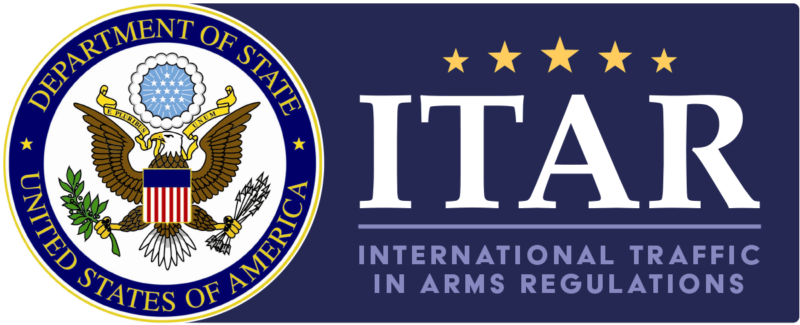Ensuring ITAR compliance is paramount in aerospace operations. This body regulates the import and export of defense-related articles and services on the United States Munitions List (USML). It is also a critical framework for safeguarding sensitive data.
Failure to adhere to these rules can result in severe penalties and jeopardize national security interests. Therefore, aerospace companies must prioritize compliance throughout their operations.
This article delves into the best practices for maintaining compliance in aerospace operations. By integrating these practices into their workflows, aerospace organizations can enhance security and mitigate potential legal and reputational risks.
What is ITAR?
International Traffic in Arms Regulations are a set of United States government rules. They generally regulate the export and import of defense-related articles, services, and technical data in the country.
It aims to safeguard national security interests by regulating the transfer of sensitive defense technologies and information to foreign entities.
So, aerospace companies designing, manufacturing, and distributing defense articles must comply with stringent export controls and licensing requirements. These regulations apply to various products, including aircraft, spacecraft, military hardware, and related technical data.

How to Best Comply with ITAR Regulations
Let’s delve into the key steps and considerations for ensuring seamless compliance with these guidelines in the aerospace industry.
1. Implement Secure Access Controls
Effective implementation of secure access controls is imperative for maintaining compliance in aerospace operations. Unauthorized access to sensitive data can compromise national security and lead to severe penalties for non-compliance.
Thus, aerospace companies must deploy robust access control measures to limit information access only to authorized personnel. Advanced technologies such as biometric authentication, access cards, and encryption enhance the security of classified data.
Establishing restricted areas within facilities also limits access to ITAR-related information. It ensures that only individuals with the appropriate clearance can access sensitive data. Regularly reviewing and updating access control policies enables organizations to adapt to evolving security threats and regulatory requirements.
2. Conduct Regular Training and Awareness Programs
Continuous education and awareness are essential to a robust compliance strategy in aerospace operations. So, all employees must understand their obligations regarding handling and protecting classified information.
Regular training sessions should cover critical aspects of ITAR restrictions and regulations. These sessions also raise awareness of the consequences of non-compliance and the importance of safeguarding sensitive data. Investing in employee education enhances compliance and strengthens the organization’s overall security posture.
3. Document Compliance Procedures
Comprehensive documentation of compliance procedures is essential for ensuring transparency and accountability within aerospace operations. Documenting processes for handling, storing, and transmitting data provides a clear framework for employees to follow.
Additionally, companies must regularly review and update ITAR certification documents to reflect changes in internal policies and remain relevant.
Aside from documenting operational procedures, organizations should maintain records of training sessions, audits, and compliance assessments. This practice demonstrates ongoing adherence to regulations.
Adequate documentation facilitates internal compliance management, streamlines the audit process, and ensures readiness for regulatory inspections.
4. Enlist Professional Data Destruction Services
Professional data destruction services can securely dispose of data in aerospace operations. When sensitive information reaches the end of its lifecycle, secure destruction is essential to prevent unauthorized access and stay ITAR-compliant.
Data destruction services utilize techniques such as shredding, degaussing, and incineration to ensure complete and irreversible destruction of classified data. By outsourcing this service to reputable service providers, aerospace companies can mitigate the risk of data leakage.
These service providers adhere to strict industry standards and regulatory requirements, ensuring that sensitive information is disposed of securely.
Safeguarding National Security: The Crucial Role of Data Destruction
In today’s aerospace landscape, prioritizing ITAR compliance is paramount to safeguarding sensitive information and protecting national security interests. Among the various compliance measures, data destruction emerges as a cornerstone practice for ensuring the secure disposal of classified data.
Data Destruction offers unparalleled expertise and utilizes advanced techniques to eliminate sensitive information irreversibly. We also mitigate the risk of unwanted access and potential breaches. By entrusting data destruction to reputable service providers like us, aerospace companies can demonstrate their commitment to compliance with regulations. They also effectively safeguard national security.
Contact us today to learn more about our data destruction services!